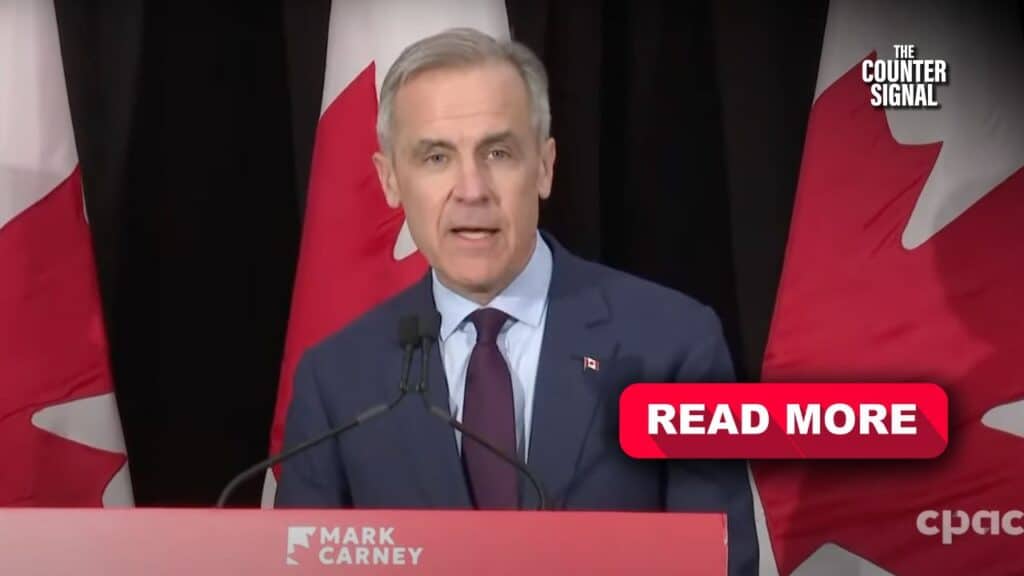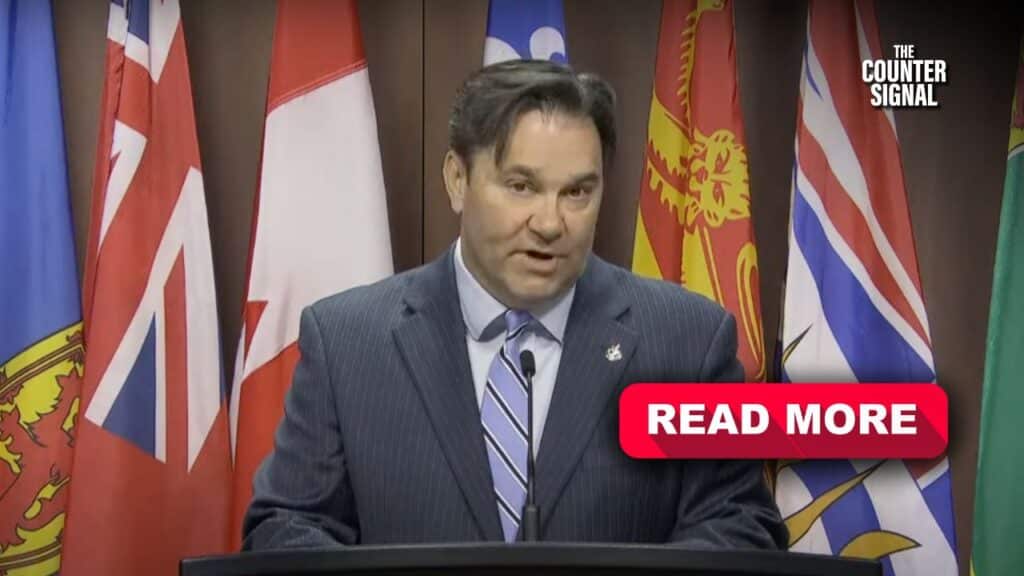Paula Simons, a Liberal, Trudeau-appointed Senator, has come out against Bill S-7, an amendment to the Customs Act she says would violate Canadians’ privacy rights.

“Travelers could be targeted for phone and computer searches based on their political views. It will put the privacy rights of thousands of Canadian travellers in real jeopardy,” the Liberal Senator warned.
As previously reported by The Counter Signal, Bill S-7, which recently passed its first reading in the Senate, would amend the Customs Act and give border agents the authority to digitally “examine documents, including emails, text messages, receipts, photographs or videos, that are stored on a personal digital device.”
Officers would further be able to “make an electronic copy of a record or document if it is impossible or impractical to seize anything on which the record or document is stored or if seizing the thing is likely to degrade the record or document or make it unusable as evidence.”
The grounds for doing so are merely “reasonable general concern.” Put simply, border officers would be able to search a citizen’s devices for practically any reason.
“It’s a brand new legal test to authorize an invasive search of your most private personal records and correspondence. A reasonable concern, one might intuit, is a lower standard than a reasonable suspicion,” Simons said.
“That sounds even more vague, more subjective than a good old-fashioned hunch or inkling. It seems counter-intuitive, to put it mildly, to create a lower, broader standard to search our private data on our private devices than to search our conventional mail or our suitcases or our car trunks, yet that is exactly what Bill S-7 does.”
I am very concerned about Bill S-7, which sets a novel, vague threshold of "reasonable general concern" for CBSA officers to search phones & laptops. We need to protect our borders – but not at the expense of watering down our core privacy rights. #cdnpoli https://t.co/jbX8LN9dRA
— Paula Simons (@Paulatics) May 3, 2022
Simons isn’t the only one to raise concerns over the vague, lower standard Bill S-7 would set if passed.
Last month, Conservative MP Cheryl Gallant sounded the alarm on the Bill, saying the difference between “reasonable grounds to believe” — the current standard — and “reasonable general concern” is significant.
“Normally, if the government wants to search your phone, it would have to go to court and present the reasons they believe searching your phone would provide evidence of criminal wrongdoing. Law enforcement must convince a justice of the Peace that they have “reasonable grounds to believe.” Those words, “reasonable grounds to believe,” are key,” wrote Gallant in a newsletter.
She continues, stating that this phrase is understood by all those in the legal profession and sets clear limits on when a border officer can seize or search a person’s personal device.
“Over the years and across many court cases, the phrase “reasonable grounds to believe” has been clearly defined. Prosecutors, judges, and defence lawyers KNOW what “reasonable grounds to believe” means. But, that is not what the socialist alliance bill says,” Gallant continues.
“Trudeau wants to be able to search your phone if his Border Agents have a “reasonable general concern.” According to Brenda McPhail, the director of the privacy, technology, and surveillance program at the Canadian Civil Liberties Association, this is a shockingly low and completely “legally novel threshold.””
Gallant continues, saying the Bill has “major privacy implications.” Moreover, the Privacy Commissioner was not consulted, even though he previously issued a report on the Canada Border Services Agency’s practice of searching people’s personal devices, which produced damning results.
“Out of the six complaints the Commissioner investigated, he found that Border Agents had searched one person’s social media and bank account using that person’s phone. In another 3 cases, the Border Agents did not enable airplane mode as they are required to do. In the remaining 2 cases being investigated, the Border Agents did take note of whether they did not turn on airplane mode. This means in 100 per cent of the cases, the Border Agents broke their own rules, or they could not prove they hadn’t broken the rules,” Gallant explains.
Gallant also claims that this Bill is beginning in the Senate because Trudeau and the NDP-Liberals believe that the media doesn’t usually pay attention to bills in the Senate, so they’ll be able to sneak it through the first stages without public contention.
She further suggests that the vaccine passport gave Trudeau’s government the “vague powers to search your phone,” making it “harder to say we live in a free country.”











